Harry: a prince among ‘real men’
The very public plight of Prince Harry has turned the spotlight on the myth of ‘the Impermeable Man’. The Duke of Sussex should be celebrated as a public figure of inestimable importance.
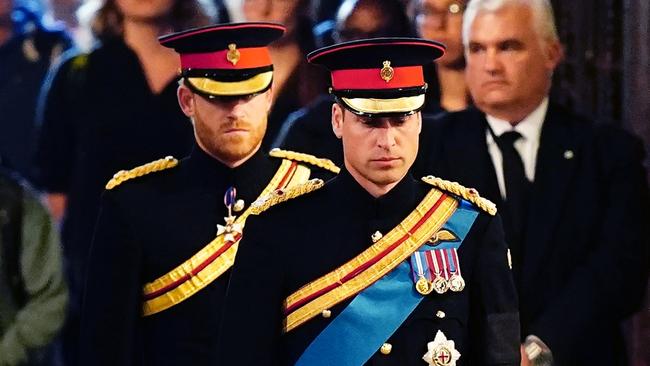
In terms of the public response to Prince Harry’s incendiary memoir, Spare – now confirmed by Guinness World Records as the fastest-selling nonfiction book of all time (1.43 million copies on its first day) – the most persistent theme is this: that by speaking out about his emotional suffering, he has not only “let the side down” in terms of civic duty, but that he is, in essence, no longer a “real” man.
Even Noel Gallagher of Oasis, responsible for the biggest-selling British album of the 1990s, dismissed him as a “typical f..king woke snowflake, f..king arsehole. Just don’t be f..king dissing your family because there’s no need for it”. (Gallagher, who, as he was handed a Brit Award by Michael Hutchence in 1996, said, “Has-beens shouldn’t present f..king awards to gonna-bes” – the INXS frontman suicided the following year – now seemingly counsels others on appropriate behaviour.)
Far from lacking courage and traditionally masculine attributes, Harry served for a decade in the British Army, completed two tours of Afghanistan, was promoted to captain in 2011, and qualified as an Apache Aircraft commander. As a result of his Netflix docuseries, the memoir, and related television appearances, his achievements are now being derided or ignored.
In Australia, Harry has been vilified as the ultimate “whingeing Pom”, a puling man-child in the thrall of his demonic, celebrity-seeking American wife – in short, a woke snowflake sobbing into his organic granola because Daddy cut the purse-strings.
As one reader wrote: “He’s chosen to make a big whingeing public deal about his poor, deprived life, with him navigating issues us mere mortals can only imagine. What rubbish.” Others added: “People who dump on their own families rarely garner much serious sympathy”, “You have to be joking. A better classification would be ‘Children’s Tales’ by an unsettled mind”, and, “This generation has been bred as snowflakes. God save us if there’s a war”.
The premise of the last comment in particular – namely, that men of previous generations were “real” men in contrast to silly little boys like Harry – is a patriarchal fairytale. During WWI, the British Army recorded 80,000 cases of emotional collapse on the Western Front, and 300,000 or so Germans – the French Army reported similar casualties among its troops – had combat-related breakdowns; medical officers complained of being overwhelmed by the “extraordinary incidence of mental and functional nervous diseases”. As psychiatrist John Appel, who specialised in combat exhaustion during WWII, noted: “Practically all men in rifle battalions who are not otherwise disabled ultimately became psychiatric casualties.” More than 500,000 US WWII combatants suffered emotional collapses, and 40 per cent of medical discharges were for psychiatric issues attributed to combat stress. These are, of course, only the formally recorded cases. The veterans who abused their families, became addicted to substances, or suicided are not mentioned.
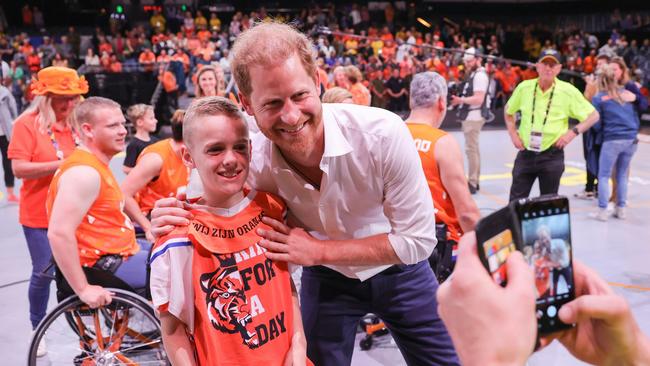
Little has changed. In 2012, a greater number of US servicemen died by their own hands than in combat. Despite this, the dangerous myth of the Impermeable Man persists.
A key feature of absolute monarchies, the Divine Right of kings – the blueprint for the Impermeable Monarch – is predicated on the idea of monarchical submission only to God, in whose image monarchs are said to be created. As Proverbs 25 reads, “the heart of Kings is unsearchable”. In this spirit, Elizabeth II was celebrated for her steadfast devotion to public service and near-religious negation of self in its pursuit. The late Queen’s speech, delivered after her 1953 coronation, was contextualised by this very concept: “I may, by God’s grace and mercy, be given to reign and serve you as your Queen.”
By definition, then, the hallmark of a British monarch, Defender of the Faith and Supreme Governor of the Church of England, must be inscrutability. Divine Right entails unknowability: the standardised grace, the standardised smile, the standardised greeting. No exclusionary bias can be made evident. This principle is expected to be adopted by all royals, which is why by calling out “The Firm” for its Machiavellian dehumanisation of family members, Harry was understood as a traitor: he served humanity above the Crown, both in himself and others.
As I write in Apple: Sex, Drugs, Motherhood and the Recovery of the Feminine, an analysis of the cultural inculcation of detachment: “A steadfast denial of the mammalian need for attachment – bonding, intimacy, tenderness – has, transhistorically, been the primary marker of the elite. Their fitness for leadership, which rests in codified behaviours demonstrating their greater distance from our animal origins, must be established, even if only through lies.”
Harry’s rejection of the antiquated royal behavioural template was the antithesis of the seemly cowing of his great-uncle, Edward VIII, who retreated into a tipsy continental twilight with his reviled twice-divorced American wife (like Meghan, Wallis Simpson was defamed as avaricious, “the lowest of the low”, a whore, “a lowborn sorceress” and so on). It is, however, Harry’s insistence on compassion and clarity that inspires the most intense enmity, which reveals the surprising role of princes in our culture: as figureheads of patriarchal masculinity.
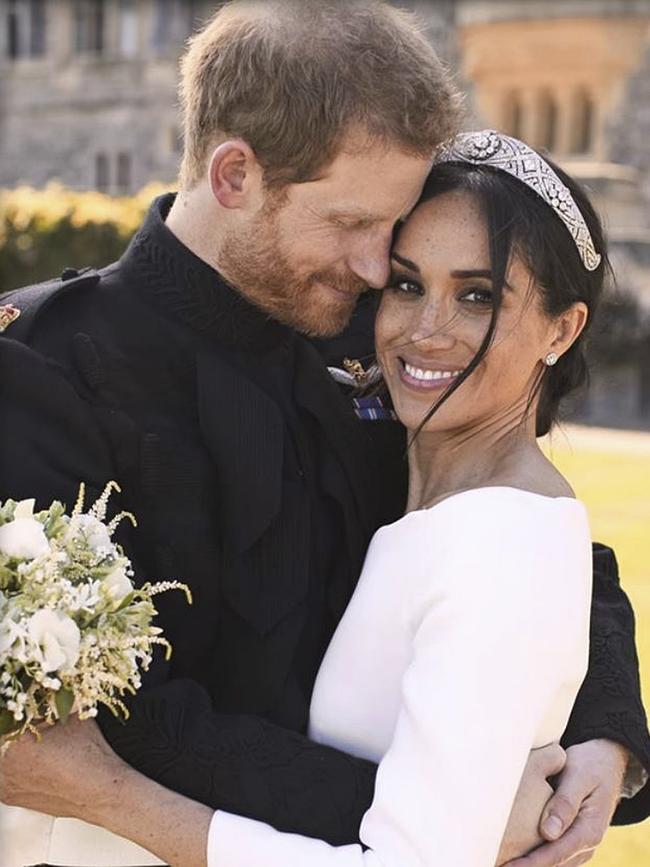
Harry’s honesty about his emotional suffering is problematic because it asserts his status as mammalian, the counterpoint to the divine. Like his mother Diana, the late Princess of Wales (who, as he recalls in Spare, had a “hatred of smugness and fakery and all things posh”), Harry prioritises attachment, establishing himself as an enemy of the Old Guard. Inspired by the charitable works of his mother and those of his wife, he wants only systemic cultural change.
In 2020, Harry and Meghan founded Archewell, the non-profit that, in December 2022, won the People’s Choice Award for Best Podcast. Recipients of Archewell grants include Girls Inc, an organisation that guides and supports five-to-18-year-old at-risk girls in over 1500 sites in America and Canada; Genesis Women’s Shelter; the Harvest Home for pregnant homeless women in Los Angeles; the Loveland Foundation for women and girls of colour; Mind UK, which campaigns for mental health awareness and support; the American National Women’s Law Centre, and others, including various philanthropic enterprises such as enabling the World Central Kitchen to build four Community Relief Centres in regions disproportionately affected by hunger.
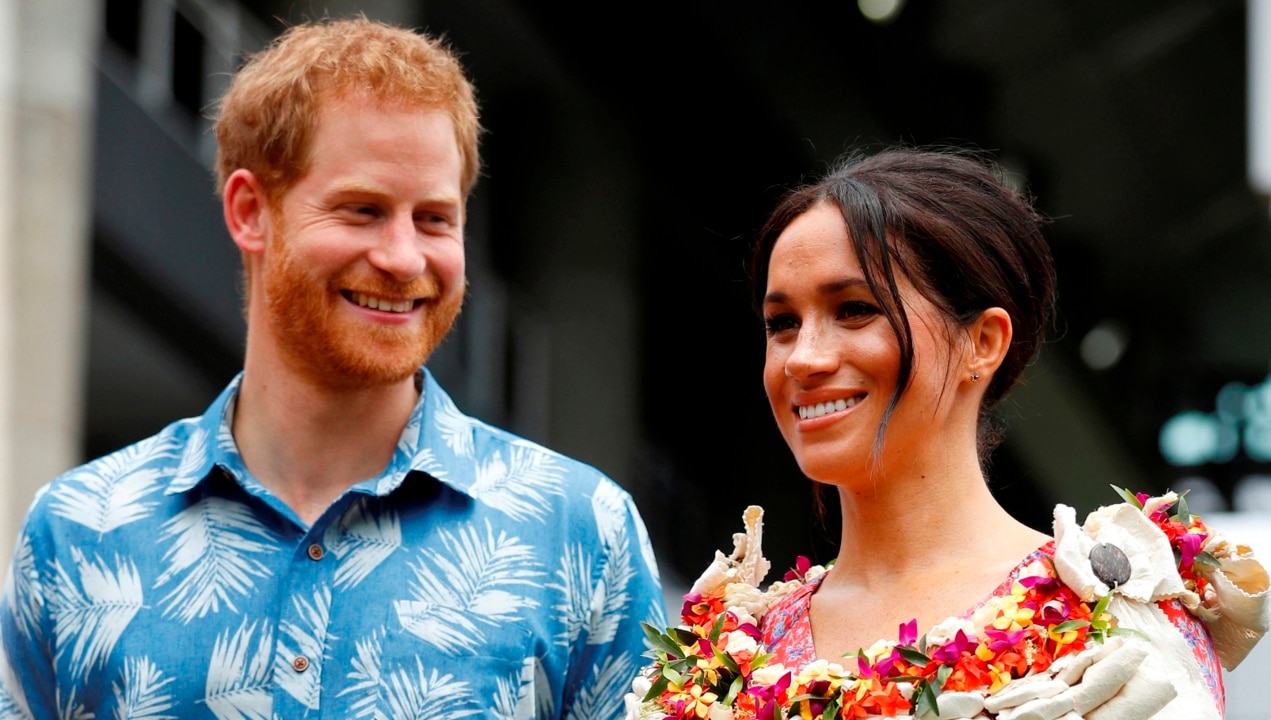
In the same spirit, Harry was inspired to found the international, multi-sport Invictus Games (“invictus” meaning “unconquered”) in 2014. Designed to inspire the recovery and rehabilitation of injured and wounded servicepeople, and to generate a wider community respect for their sacrifices, the Games, held in partnership with the Ministry of Defence, have become a lifeline for depressed, disabled and emotionally isolated veterans.
Despite this, unidentified military sources are now claiming Harry may be forced to relinquish his role as patron of the Invictus Games on the basis of his frankness in the book about his Taliban “kills” (“While in the heat and fog of combat, I didn’t think of those 25 as people. You can’t kill people if you think of them as people”). Even more ludicrously, it is now being claimed this frankness triggered the Taliban’s recent execution of Iranian-British former senior defence ministry official Ali Reza Akbari for spying.
To cap: in addition to being accused of gullibility, importunate behaviour, petulance, stupidity and so on, Harry is now said to be responsible for the choices of a murderous terrorist regime.
These claims are published by the same media outlets that, in an effort to combat the desperate global suicide toll, simultaneously counsel depressed and traumatised men to “open up and talk” about their suffering. Harry’s trauma – having his mother’s fatal car accident caused and documented for profit; knowing that no one came to her aid as she lay dying for the same reason; growing up with a minimum of affection and maximum protocol; living under constant observation; being perpetually exploited by others for financial gain; living in eternal fear of assassination or attack, and; being repeatedly, and sometimes viciously, abused and humiliated in the public domain along with his loved ones – is dismissed as so much “whingeing”. The slant of the coverage makes it clear members of the British royal family are widely believed to have no reason to suffer, and no right to empathy.
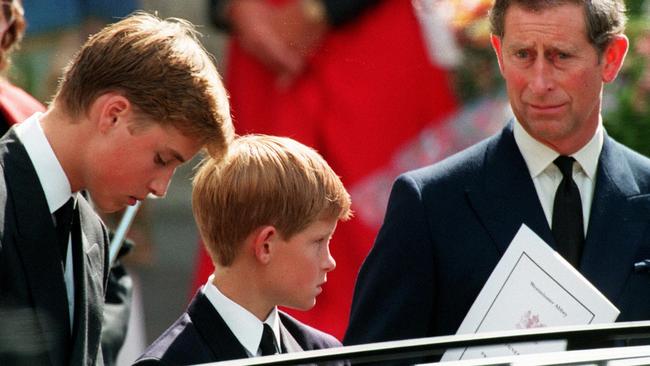
In contrast, the Ukrainian struggle is frequently cited as “real” – apparently having “personal security guards” precludes emotional trauma – “but poor Harry is the one who has suffered so much! Give us a break. Make your millions and then just go away”.
The headlines tell the story: “God, Will Prince Harry Shut Up?”, “Prince Harry needs to ‘shut up’, says former Royal Marine”, “Prince Harry hits back when told people in the UK just want him to ‘shut up’”, “Prince Harry should just shut up”, “‘Shut up, Harry’ – Royal Marine veteran slams Duke of Sussex”, and “Tory MP tells Prince Harry to ‘just shut the f..k up’ ”.
A deafening chorus, these directives have a single subtext: that “real” men, men who are not “typical f..king woke snowflakes”, put up and shut up.
Which goes some way to explaining why 75 per cent of all Australian suicides are male.
Outnumbering road casualties 2:1, Australian suicides, as the Australian Bureau of Statistics confirms, are the leading cause of death for Australians between the ages of 15 and 44.
Who would be a sensitive male in a culture that derides all shows of frailty, suffering and tenderness in men? That demarcates openly emotional men as feminine or inferior (which, even now, effectively amounts to the same thing)? That condones verbal bullying as a means of achieving compliance or submission? That crushes men who speak up about abuse – particularly within families – coercing them to lie by threatening to withdraw their status?
What hope is there in such a culture for vulnerable men?

The fact Harry was born a prince identifies him and any woman he loves as appropriate targets for public abuse. His “real” job, it seems, is to act as a verbal punching bag used to exorcise unrelated frustrations and rage in his people. Any divergence from this mandate is understood as an affront to the monarchy and a betrayal of the public’s expectation. The Divine Right of kings assures and protects the perception of all royals as fundamentally inhuman.
When Noel Gallagher pilloried Harry for speaking out about the class-based abuses he, William, Diana and Charles endured, he was, like Harry’s every other detractor, using shame to define the parameters of royal behaviour. But Harry no longer needs Gallagher’s – or anyone else’s – approval to do anything. No longer funded by the taxpayer, he is free.
In staking a claim on the narrative of his life, Prince Harry has shown us that “real” men – that all men, rich or poor – have a right to feel, suffer, and speak out against abuse and, critically, to be heard. For that alone, he is to be celebrated as a public figure of inestimable importance.
Antonella Gambotto-Burke’s new book, Apple: Sex, Drugs, Motherhood and the Recovery of the Feminine, is available online.


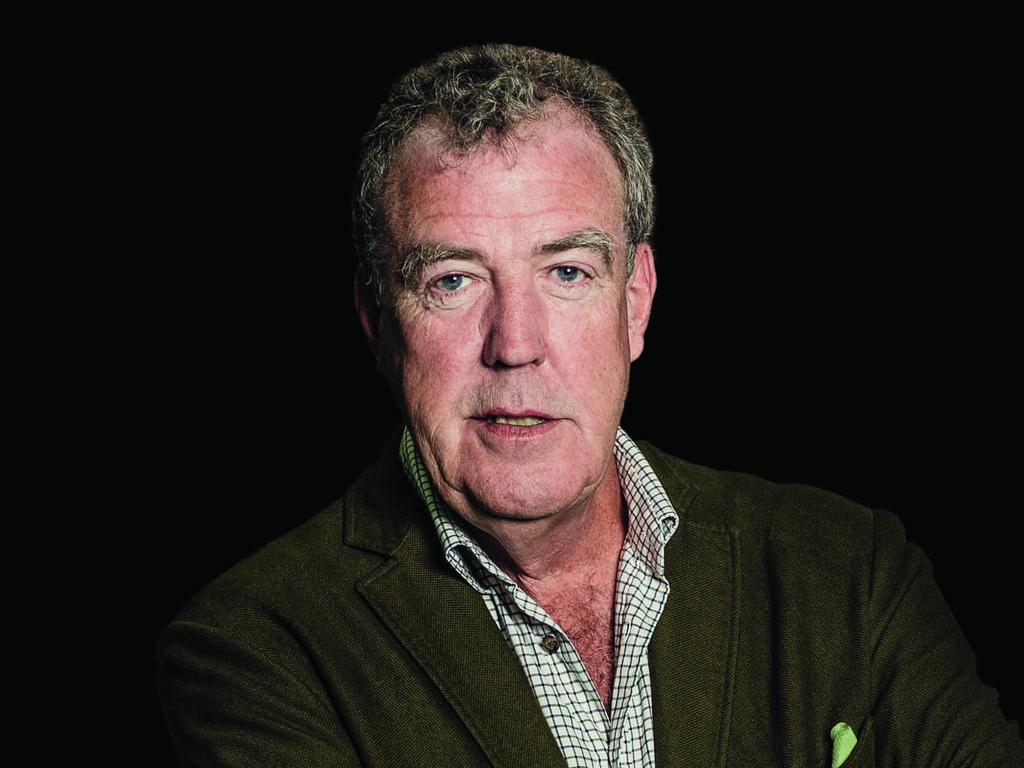
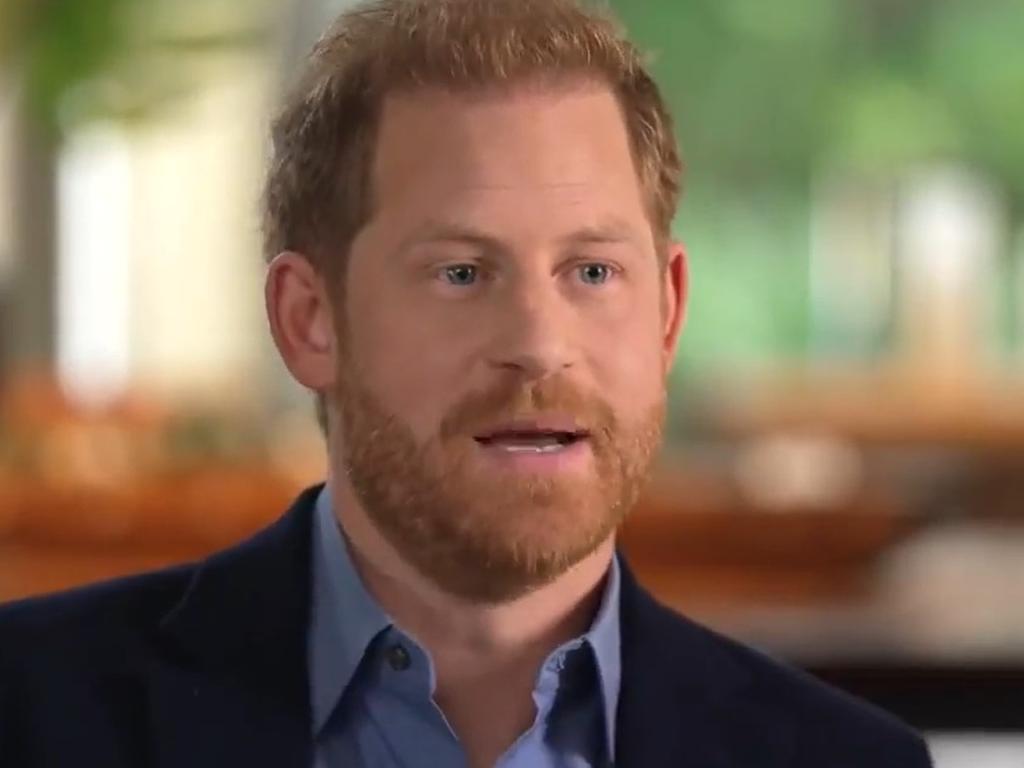


To join the conversation, please log in. Don't have an account? Register
Join the conversation, you are commenting as Logout